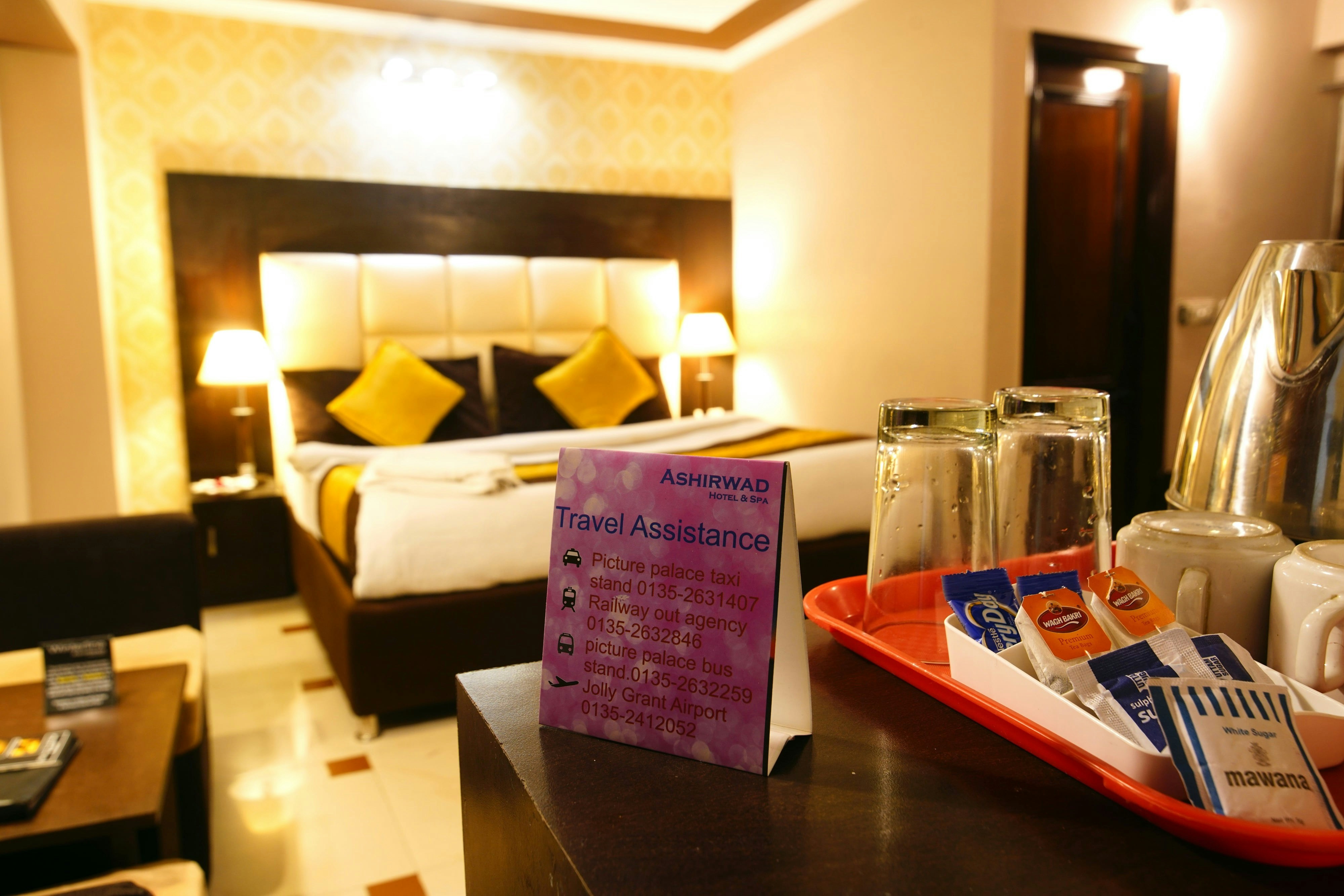Introduction to Hotel Know-How
Hotel know-how encompasses a comprehensive understanding of the hospitality industry, focusing on the seamless interaction between guests and the establishment. For travelers, this knowledge proves invaluable as it equips them with insights to navigate the various offerings, understand hotel policies, and engage with staff effectively. Conversely, for hotel personnel, mastering the nuances of hotel operations is paramount to ensuring high standards of service and guest satisfaction.
Understanding hotel know-how allows guests to make informed decisions about their stay. From selecting the ideal accommodation that aligns with their preferences to utilizing available amenities and services, this expertise enhances their overall experience. For instance, knowing the check-in and check-out procedures can significantly reduce stress upon arrival and departure. It also empowers travelers to communicate their needs, such as requesting additional services or addressing any concerns during their stay.
On the other hand, hotel staff benefit from grasping hotel know-how by cultivating a more welcoming environment. When personnel are trained in best practices and possess an in-depth understanding of guest expectations, they can provide personalized services that cater to individual preferences. This, in turn, fosters a positive relationship between staff and guests, creating an atmosphere of trust and comfort.
Moreover, an effective grasp of hotel operations—ranging from booking procedures to maintenance protocols—enables staff to anticipate challenges and respond adeptly to diverse situations. Consequently, this proficiency contributes not only to increased guest satisfaction but also to operational efficiency, as staff can streamline processes and address issues proactively.
In sum, mastering hotel know-how is essential for both travelers and hotel employees. A well-informed guest can maximize their stay, while knowledgeable staff can deliver exceptional service. This synergy ultimately enhances the overall experience, creating memorable stays that bring guests back time and again.
Understanding Different Hotel Types
When planning a trip, one of the most crucial decisions travelers face is selecting the right type of hotel that aligns with their preferences and budget. Hotels vary significantly in terms of ambiance, amenities, and pricing structures, each catering to distinct target markets. Understanding these different hotel types can facilitate a more satisfactory travel experience.
Luxury hotels are often synonymous with opulence and superior service. They typically feature high-end amenities such as fine dining restaurants, spas, and personalized concierge services. The target clientele usually includes affluent travelers seeking a lavish experience, often with an emphasis on comfort and exclusivity. Luxury hotels tend to be situated in prime locations, enhancing their appeal for both leisure and business travelers who appreciate nearby attractions or corporate venues.
Boutique hotels present a more intimate lodging experience characterized by unique design and a distinct personality. These hotels often have less than 100 rooms and are known for offering personalized services. Ideal for travelers looking for an authentic experience, boutique hotels reflect the culture of their surroundings, incorporating elements of local art and cuisine. Their target market includes hip, young travelers and those seeking a unique atmosphere rather than the standard hotel experience.
Budget hotels cater to cost-conscious travelers who prioritize affordability without sacrificing quality. These establishments typically provide the basics—comfortable beds and clean facilities—at reasonable rates. They are popular among backpackers, families, and business travelers looking to minimize expenses while ensuring a decent level of comfort. While amenities may be limited compared to higher-end options, budget hotels often feature essential services such as complimentary breakfast and Wi-Fi.
Lastly, extended-stay hotels offer a hybrid option for guests seeking temporary yet home-like accommodations. These hotels are designed for longer visits and feature amenities such as kitchenettes and laundry services. They attract business professionals on long-term assignments and families relocating temporarily, providing them with flexibility and convenience.
Understanding these various hotel types empowers travelers to make informed lodging choices that best suit their needs, preferences, and budgets.
Booking Best Practices
When it comes to securing accommodations for your travels, establishing effective booking practices is essential to enhance your overall experience. Timing plays a crucial role in attaining the best rates for your hotel stay. It is widely observed that booking in advance, particularly for popular travel seasons, can yield significant savings. Generally, at least two to three months prior to your intended travel dates will allow you to take advantage of lower prices. Conversely, last-minute bookings may sometimes offer discounts, especially if hotels are keen to fill remaining rooms.
Utilizing online booking platforms effectively can also aid in finding the best deals. Websites and mobile applications often provide comparative rates from various hotels and help users discover exclusive promotional offers. Be sure to check multiple platforms, as prices may vary, and some may offer perks like free meals or upgrades for direct bookings. Additionally, subscribing to newsletters from your preferred hotel chains and travel agencies can keep you informed about flash sales or exclusive discounts.
Reading reviews is a pivotal aspect of the booking process. Visitors frequently share their experiences on review sites, providing insights into hotel cleanliness, customer service, and facilities. Pay attention to recent reviews for a current perspective and prioritize those that highlight concerns relevant to your stay. In addition, understanding the cancellation policies is paramount; knowing the flexibility your booking allows can help you manage unforeseen circumstances effectively. Before finalizing your reservation, do not hesitate to reach out to the hotel for any specific inquiries or requests you may have, such as room preferences or accessibility needs, ensuring a customized stay tailor-made for your requirements.
Essential Hotel Etiquette
When staying at a hotel, adhering to proper etiquette not only enriches your own experience but also fosters a pleasant atmosphere for both guests and hotel staff. Knowing the dos and don’ts of hotel etiquette can make your visit significantly more enjoyable. Upon arrival, checking in smoothly is imperative; ensure you have necessary documentation ready and be courteous to the front desk staff. Keep interactions polite and brief, as the staff is often managing multiple check-ins simultaneously.
During your stay, it is vital to respect hotel property and the comfort of other guests. This includes keeping noise to a minimum, especially during nighttime hours, and being mindful of shared spaces like lounges or dining areas. Additionally, you should always treat hotel employees with kindness and gratitude, as they play a crucial role in ensuring a satisfying guest experience. Simple gestures, such as saying “please” and “thank you,” can go a long way in establishing a positive rapport.
While tipping practices may vary by location and hotel’s service level, it is generally considered courteous to tip housekeeping staff, bellhops, and concierges for their services. A good rule of thumb is to leave a few dollars per night for cleaning staff and a more substantial tip for exceptional service. Remember to place any tip in an envelope or leave it in a visible spot to avoid confusion.
Lastly, when checking out, make sure to settle any outstanding charges and return your keys promptly. Leaving feedback, whether positive or constructive, can also be beneficial for the establishment, as it assists them in improving their services. Overall, practicing good hotel etiquette will enhance not only your stay but also contribute positively to the hotel’s atmosphere.
Understanding Hotel Amenities
When planning a stay at a hotel, understanding available amenities can significantly enhance your experience. Hotel amenities refer to the various features and services provided by the establishment to improve guest comfort and convenience. Common amenities include Wi-Fi, breakfast options, swimming pools, fitness centers, and spa services. Having knowledge of these offerings can enable guests to maximize their stay.
Wi-Fi has become an essential amenity for both leisure and business travelers alike. Most hotels now offer complimentary high-speed internet access, allowing guests to stay connected with family, work, or entertainment during their stay. Guests should inquire about the speed and reliability of the Wi-Fi service, especially if they require a stable connection for important tasks.
Breakfast is another key amenity that can vary widely among hotels. Some establishments provide complimentary breakfast, while others may offer a buffet or à la carte menu for a fee. It is beneficial to clarify breakfast options during check-in to ensure guests start their day satisfied. Additionally, understanding the hours of service can help travelers plan their mornings more efficiently.
Hotels with swimming pools provide excellent opportunities for relaxation and recreation. Guests should check whether the pool is indoor or outdoor, as well as any specific hours of operation or restrictions in place. For those seeking on-site fitness facilities, many hotels feature gyms equipped with essential workout gear. Familiarizing oneself with the gym’s operating hours and available equipment can promote a healthier lifestyle while traveling.
Overall, being aware of the various hotel amenities allows guests to enjoy their stay to the fullest. By taking advantage of these services such as Wi-Fi, breakfast, pools, and fitness centers, travelers can create a more enjoyable and memorable experience during their time away from home. Effective communication with hotel staff regarding amenities can also contribute to fulfilling expectations.
Navigating Hotel Complaints
Encountering issues during a hotel stay can be frustrating, but effectively communicating your complaints to hotel management is essential for achieving a satisfactory resolution. The first step in addressing any concern is to remain calm and composed. Approaching the situation with a respectful demeanor sets a positive tone, which can significantly influence how staff respond to your grievances.
It is important to clearly articulate the issue you are facing. Provide specific details about your complaint, including the nature of the problem, the location within the hotel, and any relevant dates or times. For instance, if you are unhappy with the cleanliness of your room, describe the particular areas that were not up to standard. This level of detail will help hotel management understand the situation better and enable them to take appropriate action.
When addressing your complaint, consider requesting to speak with a manager or supervisor, as they often have the authority to address issues more effectively than front-line staff. It may be beneficial to frame your grievance in a way that focuses not only on the negative experience but also on how it can be resolved. For example, you could suggest a room change or request additional amenities as compensation for the inconvenience.
Understanding your rights as a guest is also crucial. Familiarize yourself with the hotel’s policies regarding complaints and resolutions, which are often found in the guest information materials provided at check-in or on the hotel’s website. This knowledge will empower you to confidently advocate for yourself and maintain reasonable expectations while addressing your concerns.
By mastering the art of expressing complaints respectfully and constructively, you increase your chances of receiving a prompt and satisfactory resolution. Remember, effective communication is key in navigating hotel complaints and ultimately ensuring a more pleasant stay.
The Role of Hotel Staff
In the hospitality industry, the hotel staff plays an essential role in ensuring that guests have a pleasant and memorable experience. Different departments within a hotel contribute uniquely to the overall satisfaction of the guests. Understanding these distinct roles can foster a deeper appreciation for the efforts that go into maintaining high accommodation standards.
First and foremost, the front desk staff serves as the face of the hotel. They are responsible for checking guests in and out, providing information regarding hotel amenities and services, and addressing any inquiries or concerns that guests may have during their stay. This department is pivotal in creating a positive first impression, as the courtesy and efficiency of front desk personnel often set the tone for the entire experience.
Another critical component of hotel operations is the housekeeping team. These dedicated professionals ensure that every room is clean, comfortable, and welcoming. Their duties extend beyond basic cleaning; they are also responsible for restocking essential items, maintaining cleanliness in common areas, and attending to special requests from guests. The housekeeping staff’s attention to detail directly impacts guests’ comfort and overall opinion of the hotel.
Moreover, management plays a vital role in orchestrating the entire hotel operation. Managers are tasked with overseeing staff performance, managing budgets, driving marketing initiatives, and ensuring that the hotel’s standards are upheld. A well-functioning management team is crucial for the hotel’s success, as they cultivate a positive work environment and lead by example. Each staff member, from front desk to management, works collaboratively to enhance the guest experience, emphasizing the interconnected nature of hotel operations.
By recognizing the various functions and contributions of hotel staff, guests can develop a greater appreciation for the meticulously coordinated effort that ensures a comfortable and seamless stay.
Safety and Security in Hotels
When it comes to enjoying a perfect stay, the safety and security protocols implemented by hotels play a critical role. Modern hotels are equipped with various security measures designed to ensure the safety of their guests. One of the most common safety features is the key card system, which has largely replaced traditional keys. This system provides guests with a unique access card that is programmed for their specific room, enhancing security by limiting access to unauthorized individuals.
In addition to key card systems, many hotels utilize surveillance cameras in public areas, such as lobbies and hallways. These cameras help monitor activities and deter potential criminal behavior. Furthermore, hotels often employ security personnel who are trained to respond to emergencies and ensure a safe environment for all guests. Emergency exits and fire safety protocols are also typically displayed clearly throughout the premises, allowing guests to familiarize themselves with safety procedures.
While hotels take numerous precautions to maintain a secure environment, guests can also take proactive steps to enhance their own safety. One crucial piece of advice is to carefully evaluate the locking mechanisms on room doors upon entering. Ensuring the door is fully secure before settling in can provide peace of mind. Guests should also refrain from sharing their room numbers and avoid disclosing personal information to strangers. Additionally, it’s advisable to make use of the hotel safe for storing valuables, rather than leaving them unsecured in the room.
Being aware of the hotel layout, including the location of emergency exits, can also be beneficial in case of unforeseen situations. Overall, by understanding the safety measures in place and taking individual responsibility, guests can contribute to a safe and secure hotel experience.
Conclusion: Making the Most of Your Hotel Experience
In reflecting on the various aspects of securing a comfortable and enjoyable hotel stay, it is essential to remember the key factors that contribute to a positive experience. First and foremost, understanding your accommodation options is crucial. Whether selecting a luxury establishment or a cozy boutique hotel, knowing what amenities and services are offered can significantly enhance your satisfaction. Familiarizing yourself with hotel policies will also empower you to navigate your stay effectively and reduce the risk of misunderstandings.
Travelers should make the most of their hotel knowledge by engaging with staff and fellow guests alike. Professional and friendly hotel staff can provide invaluable recommendations, whether for local attractions or dining options, further enriching your journey. Being proactive in communication often results in personalized service, leading to an even more rewarding experience. Similarly, connecting with other guests can foster a sense of community, which may enhance your overall stay.
Another critical takeaway is the importance of providing feedback. Hotels rely on guest insights to improve their services and facilities continuously. When you express your opinions—whether positive or constructive—you contribute to the ongoing enhancement of hospitality standards. Moreover, taking the time to express gratitude, be it through a simple thank you or a positive review, fosters a pleasant atmosphere for both visitors and hotel staff.
By applying this essential hotel know-how, travelers can maximize their enjoyment while navigating hotels. A mindful approach to booking, engaging with staff, and sharing thoughts will not only enhance individual experiences but also support the broader hospitality industry in providing memorable stays for everyone. Ultimately, knowledge truly is power in achieving the perfect hotel experience.


